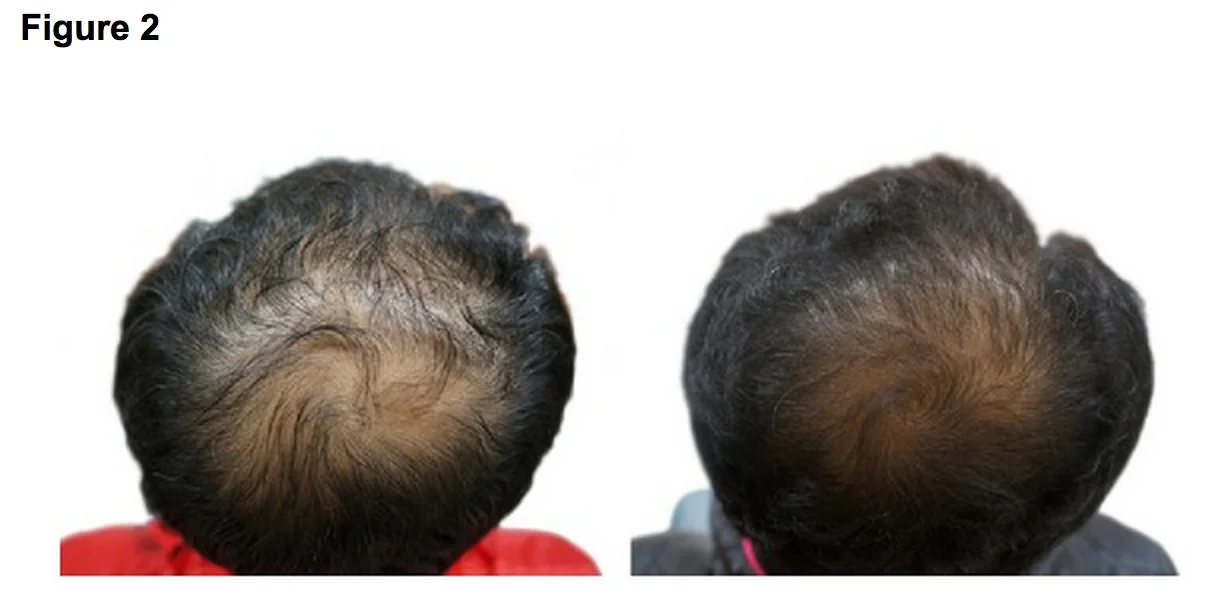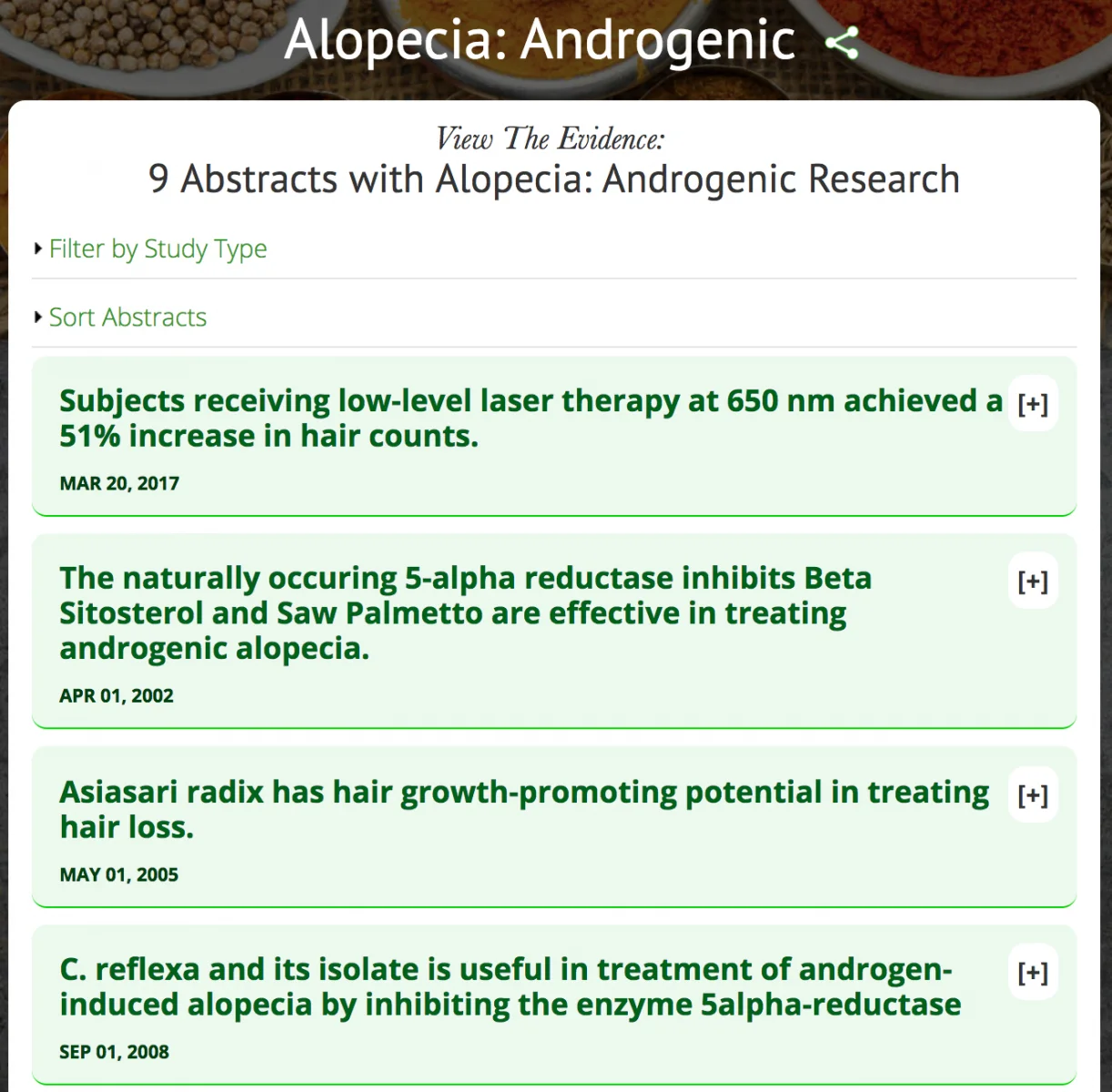Pumpkin Seed Oil Found to Help Reverse Balding
Conventional drugs for hair loss come with outrageous side effects such as male breast enlargement and erectile dysfunction. Recent research finds nature’s answer to male pattern balding – pumpkin seed oil.
Researchers from the Republic of Korea’s Pusan National University have confirmed that pumpkin seed oil increases hair growth among balding men.
The medical researchers tested the pumpkin seed oil on 76 male patients with moderate androgenic alopecia – male pattern hair loss. None of the patients had tried any previous medication, supplement or topical therapy for at least three months prior to the beginning of the study. The researchers recruited 90 patients, but excluded those with high liver enzyme levels.
The patients were divided into two groups and half were given a placebo. The treatment consisted of giving the patients 400 milligrams of the pumpkin seed oil per day in capsules. They were given two capsules before breakfast and two capsules before dinner.
After three months and at the end of the study at six months the patients were assessed using blinded practitioner analysis, and given a point score, which ranged from -3 (greatly decreased) to +3 (greatly increased).
Each scalp was also photographed using phototrichography – which is a polarizing technology, allowing the hair loss region to be targeted and measured from the center.
The researchers also conducted hair counts using two different lenses. In addition, the patients rated their own hair gain using the Visual Analogue Scale (VAS).
In the photographic analysis, the researchers found that 44% of the group taking the pumpkin seed oil slightly or moderately improved hair growth, while 51% were unchanged and 2.7% – actually just one patient – had slightly more baldness at the end of the six months.
In comparison, among the placebo group, 28% had increased baldness and 64% were unchanged, while only 7.7% were slightly or moderately improved in hair growth.

View a more detailed pictorial analysis
In the phototrichographic analysis, the pumpkin seed oil group had significantly higher hair counts – over three times more. The pumpkin seed oil group saw 30-40% increased hair counts while the placebo group showed 5-10% more hair count on average.
The researchers found the treatment to be safe, with only one report of mild stomach upset during the trial.
This contrasts greatly with conventional medical treatments such as topical minoxidil and oral finasteride. The latter has resulted in adverse effects including erectile dysfunction and gynecomastia – the enlargement of the male breasts. Meanwhile, side effects of minoxidil include scalp itchiness and scaling.
As a result of side effects and lack of success, many men discontinue treatment of these drugs. A study from UCLA found that many finasteride users stopped their treatment shortly after starting. The study, which surveyed 1,261 patients, found that only a confirmed 414 patients (32%) continued their treatment past one year, while 297 definitely stopped taking the treatment between three and 15 months. The research concluded:
“A total of 414 men continued to take the medication, but only 211 returned detailed questionnaires. A small percentage of this group felt that they grew hair. The remaining patients noted poor results.”
Other research has found pumpkin seed oil can inhibit the 5-alpha reductase enzyme – implicated in slowing and stopping hair growth. This enzyme is involved in steroid conversion, including aldosterone, testosterone, cortisol and others.
With regard to alopecia, 5-alpha reductase is involved with the conversion of testosterone to dihydrotestosterone (DHT) which is one of the central mechanisms involved in alopecia. High dihydrotestosterone levels produces damage among the hair follicles. This causes the hair to thin until the follicle goes into dormancy. At this point, there is complete hair loss at the follicle.
About 95% of hair loss is due to this mechanism – androgenic alopecia. Learn more about natural interventions for this condition by using the GreenMedInfo.com research portal on the topic:
REFERENCES:
Cho YH, Lee SY, Jeong DW, Choi EJ, Kim YJ, Lee JG, Yi YH, Cha HS. Effect of pumpkin seed oil on hair growth in men with androgenetic alopecia: a randomized, double-blind, placebo-controlled trial. Full Free Article Evid Based Complement Alternat Med. 2014;2014:549721. doi: 10.1155/2014/549721.
Rapaport MJ. Follow-up of 1 mg finasteride treatment of male pattern baldness-difference between clinical trials and private office follow-up: influences on prescribing habits evaluated. Dermatol Surg. 2004 May;30(5):761-3.
Libecco JF, Bergfeld WF. Finasteride in the treatment of alopecia. Expert Opin Pharmacother. 2004 Apr;5(4):933-40.
Ejike CE, Ezeanyika LU. Inhibition of the experimental induction of benign prostatic hyperplasia: a possible role for fluted pumpkin (Telfairia occidentalis Hook f.) seeds. Urol Int. 2011;87(2):218-24. doi: 10.1159/000327018.
Gossell-Williams M, Davis A, O’Connor N. Inhibition of testosterone-induced hyperplasia of the prostate of sprague-dawley rats by pumpkin seed oil. J Med Food. 2006 Summer;9(2):284-6.









